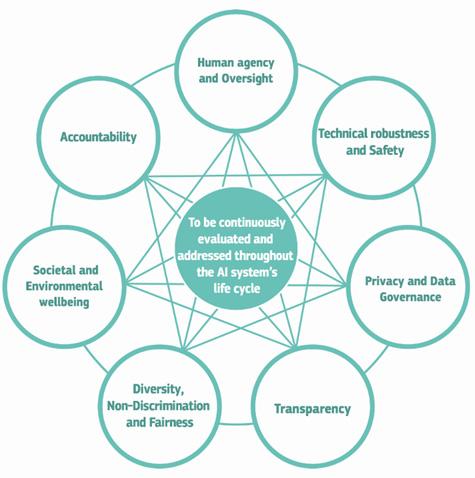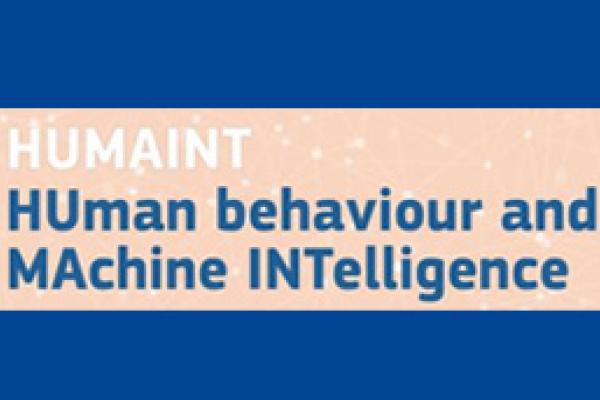Context
In the European, human-centric approach, artificial intelligence (AI) is considered a tool operating in the service of humanity and of the public good, aiming to increase individual and collective well-being. People will only be able to confidently and fully reap the benefits of a technology that they can trust: therefore, AI’s trustworthiness must be ensured.
In order to create an environment of trust for the successful development, deployment and use of AI, the European Commission encouraged stakeholders to implement the seven key requirements for trustworthy AI defined by its High-Level Expert group and outlined in the figure.
The Commission published in 2020 its proposal of regulatory framework for Artificial Intelligence, the AI Act, which adopts a risk-based approach based on a subset of these seven requirements. In this approach, the regulation defines a set of prohibited practices and a set of high-risk scenarios in which systems must fulfill a set of requirements in order to be deployed in Europe.
Approach
AI Watch carries out research on the opportunities, risks and challenges brought by AI systems when exploited in different applications with a strong social impact, such as: the use of algorithms for decision making in criminal justice, the role of AI in medicine and healthcare, children-robot interaction, facial analysis, autonomous vehicles, or the impact of AI in music and culture.
From these analyses, AI Watch develops methodologies for trustworthy AI, with a focus on aspects such as:
- evaluation of bias and fairness with respect to gender or age in data, algorithms, and research communities
- ensuring transparency of systems
- implementation of relevant human oversight strategies
This work is undertaken in collaboration with the HUMAINT project, which engages in interdisciplinary research involving knowledge and methodologies from engineering and computer science, cognitive science, and economics.
Publications
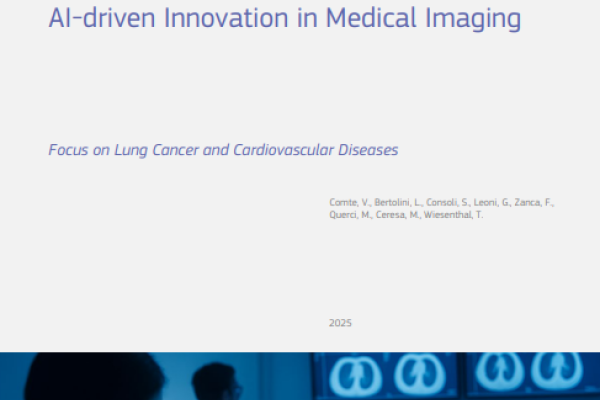
Artificial Intelligence and Deep Learning are increasingly being used to support the prevention, diagnosis, and follow-up of non-communicable diseases, helping to ease the burden on under-resourced healthcare systems.
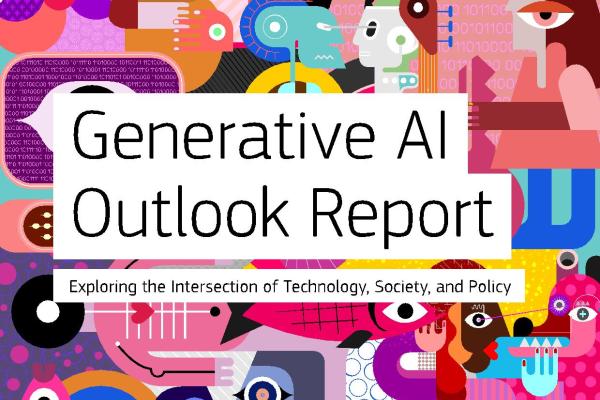
Generative AI is increasingly affecting our society. Our health and education systems, science, public administration and industrial ecosystems are progressively adopting this technology. A new JRC study provides policy makers with insights to address its risks and opportunities.
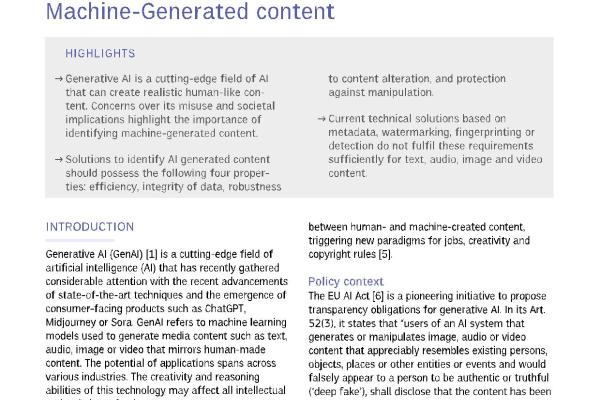
This science for policy brief explores solutions to such identification and concludes that they should possess the following four properties: efficiency, integrity of data, robustness to content alteration, and protection against manipulation.
by Lorenzo Porcaro, João Vinagre, Pedro Frau, Isabelle Hupont and Emilia Gómez
written by Marina Escobar-Planas, Vicky Charisi, Isabelle Hupont, Carlos-D Martínez-Hinarejos and Emilia Gómez
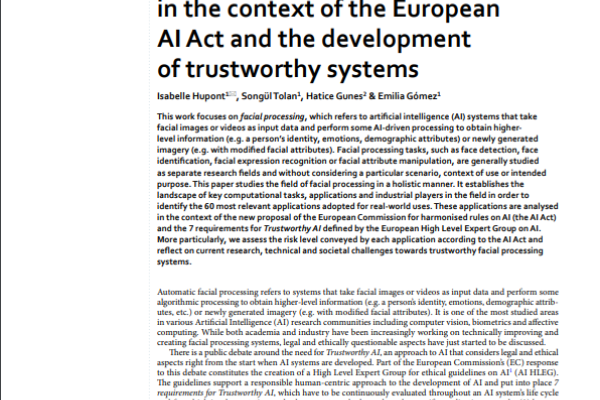
Scientific report in Nature by Isabelle Hupont, Songül Tolan, Hatice Gunes & Emilia Gómez

- Highlighted
Seville, 12 June 2025 — As artificial intelligence (AI) continues to reshape the scientific landscape, the European Commission is intensifying its efforts to define a coherent and forward-looking strategy for AI in science.
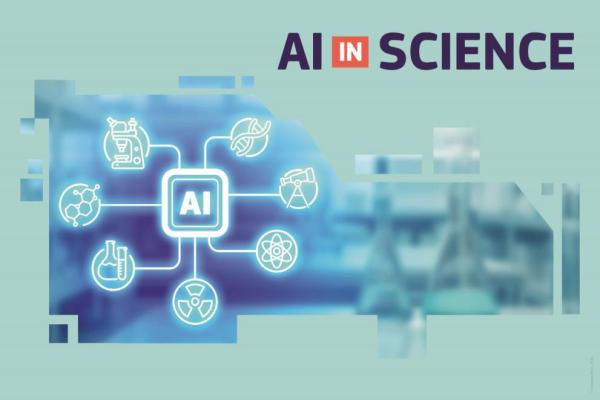
On 15 May 2025, the European Commission hosted an online workshop bringing together 76 researchers from 11 countries to contribute to the forthcoming EU Strategy on Artificial Intelligence in Science.

First rules of the Artificial Intelligence Act are now applicable

On 8 November, experts from academia, industry and EU institutions joined this virtual event organised by JRC’s Digital Economy Unit.
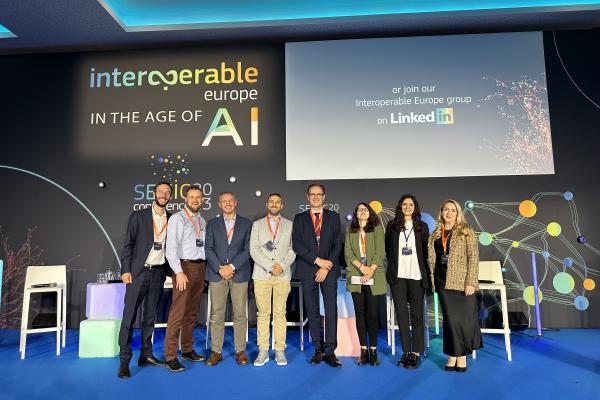
The JRC presented its latest developments during the session “Trustworthy AI for Interoperability in the Public Sector”

